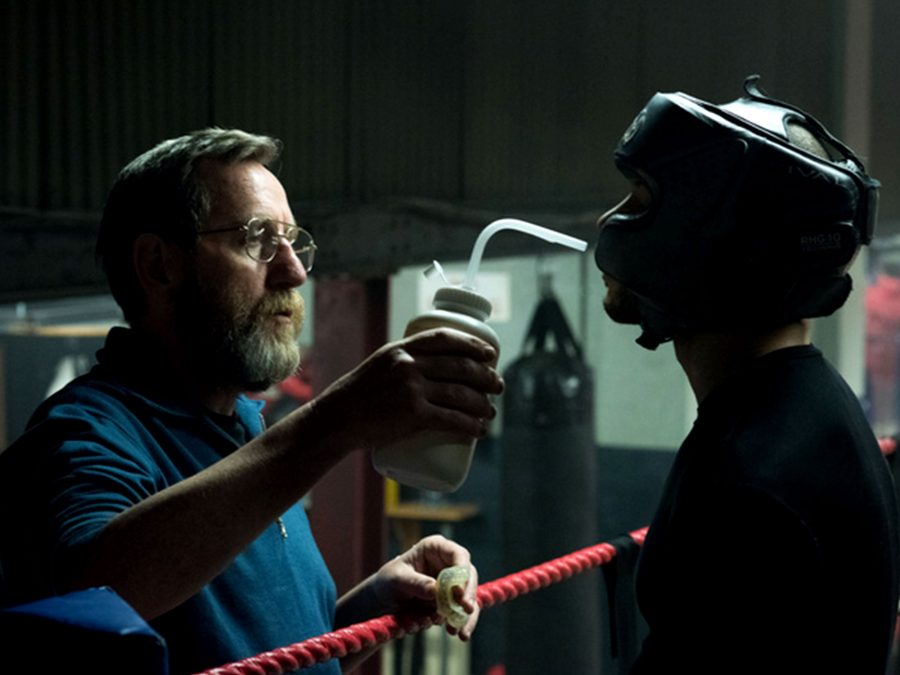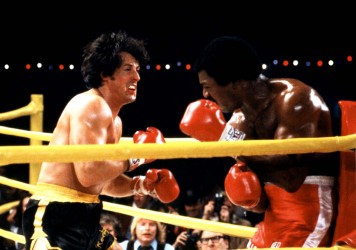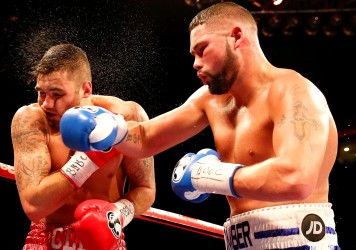Johnny Harris puts in an emotionally layered shift in this hard-hitting boxing drama.
Great boxing movies are often stories of broken dreams, missed opportunities and the long road back to redemption, and Jawbone adheres to this classic template. An amateur champion at 16, Jimmy McCabe (Johnny Harris) coulda been a contender, he coulda been somebody, instead of being, “just another boring drunk who had it all in the palm of his hand and pissed it up against a wall,” as his trainer Eddie bluntly puts it.
When we’re introduced to Jimmy he is at his lowest ebb. Homeless after being evicted from his flat, he spends his nights drinking by the Thames, gazing into the deep waters. The despairing look in his eyes suggests he has considered jumping in more than once.
We shouldn’t be surprised that Harris conveys Jimmy’s pain with such searing authenticity. He has often been capable of finding a note of sadness or vulnerability in even his most despicable characters – think of his vivid turn as a pimp in London to Brighton – and here he has the added benefit of knowing exactly what his character is going through.
Harris wrote Jawbone based on his own experiences, and the film’s most resonant moments capture intimate details of the alcoholic’s plight: waking up bleary-eyed and in need of a sustaining drink; striving to hide his desperation behind a brave public face; experiencing a deep flush of shame as he tells lies to cover his tracks.

Director Thomas Napper likes to get uncomfortably close to Jimmy or frame him in a way that emphasises his isolation, and we often see him alone at night, wandering the dark empty streets as he tries to keep his demons at bay.
Although Ian McShane slithers by for an oleaginous one-scene cameo, Jawbone is primarily a film about the relationship between three men. Like Michael Smiley’s Eddie, gym owner Bill (Ray Winstone) looks at Jimmy with a mixture of anger, disappointment and paternal affection. He has dedicated his life to helping young boys get off the streets, pushing them to make something of themselves, and through Winstone’s tender performance we understand how Jimmy’s continued lapses have wounded him deeply. Winstone and Harris share a scene halfway through the film that is both unexpected and moving, with the emotional impact being amplified by the skilful underplaying of both actors.
Jawbone is an impressive and powerful film about alcoholism, and a pretty good one about boxing. The narrative develops towards a final unlicensed fight that Jimmy hopes will dig him out of a financial hole, and the filmmakers make an effort to minimise the number of standard training montages and familiar story beats as he gradually rebuilds himself. When this bout does finally come around, Napper and his cinematographer Tat Radcliffe put us inside the ring, getting their cameras as close as possible to the two sluggers and capturing the impact of their blows.
It’s intense and frenetic, but it’s also strangely anti-climactic, which seems to be the point. Jawbone is a film about a man who knows that his real fight will begin the moment he steps outside the ring, and when he finally faces up to that fact in the film’s shattering final scene it feels like a bigger victory than any he could have managed with his gloves on.
Published 11 May 2017
Another film about a boxing comeback. Surely we’ve seen it all before?
Not your standard boxing film, this is a wrenching portrait of an addict.
Packs a surprisingly powerful punch

From Body and Soul to Creed, the sports movie has a rich tradition of raising awareness around issues of class and race.

The veteran screen star talks Jawbone, bad superhero movies and how ‘tough guy’ acting has evolved.

A new drama about a homegrown fighter looks set to capitalise on the sport’s recent surge in popularity.